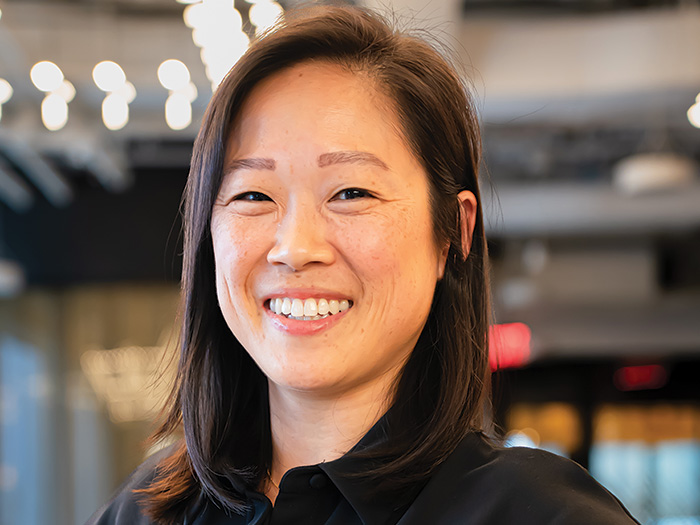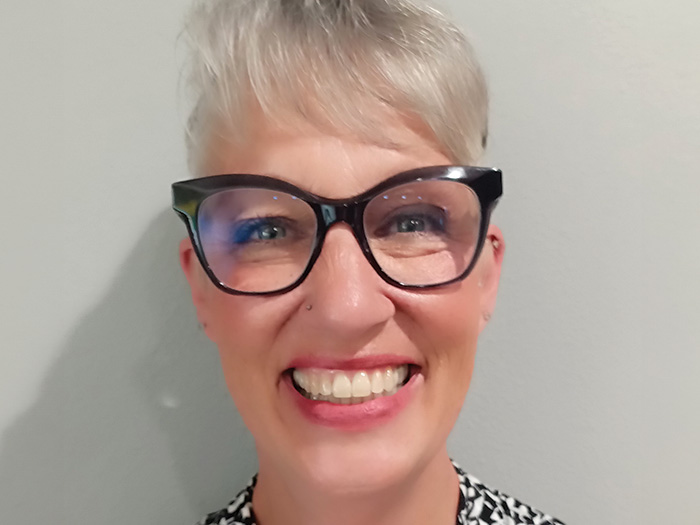Sponsored Content by Paradigm
Caring for the Whole Person
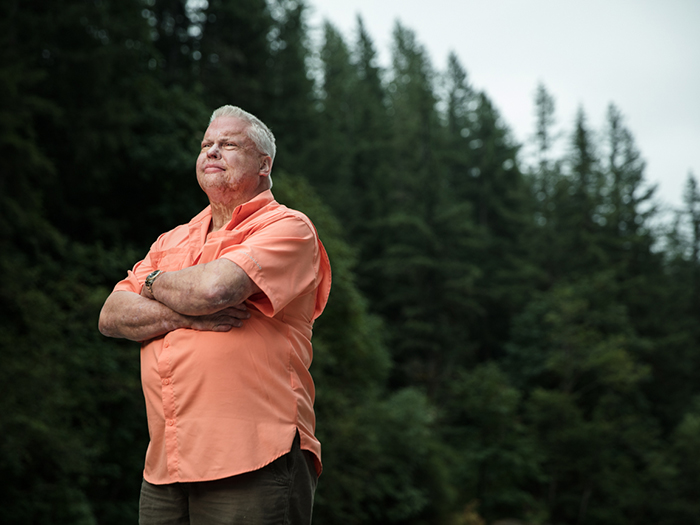
Brian Hall, fuel yard safety manager injured in biomass plant explosion.
When people experience traumatic injuries, their worlds are upended in a moment. Everything their lives are built on is thrown up in the air: health, livelihood, interpersonal relationships. They must now deal with grievous physical injuries and intense emotional scars. That’s what happened to Brian Hall. He was a fuel yard and safety manager at a small biomass plant when an explosion burned most of his body.
“The soles of my boots had melted,” says Hall. “My shirt was completely burned off, the only thing left was the collar. My hard hat and my safety glasses had melted to my head, fortunately. That’s what saved my scalp and eyes.”
To recover, Hall needed comprehensive medical care, but that was only part of the picture. He also needed people with the right expertise to work with him and his providers to ensure he received the right treatments, at the right time, for his unique situation – all within the workers’ compensation world.
Managed by Paradigm Catastrophic Care Management, Hall’s care coordination was driven by one goal — heal his physical and psychosocial injuries to restore his health. Patients like Hall face the most severe injuries and months or years of surgeries, therapy and psychosocial care. Understanding what that ultimate outcome looks like clarifies each step along the way.
One Patient at a Time
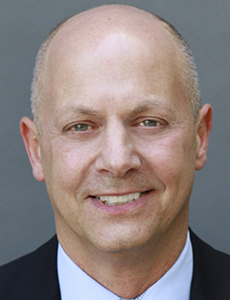
Steven Moskowitz, MD Senior Medical Director at Paradigm
An ongoing critique of health care, including workers’ compensation, is that people can be treated like numbers, rather than receiving the most appropriate treatments, both physical and emotional, for their individual needs.
For almost 30 years, Paradigm has been the antidote to that approach, learning as much as possible about each person and working with providers to ensure their care matches their needs. Every catastrophic injury is unique and incredibly complex. An injured worker could require 100 different interventions before they recover – countless diagnostic procedures, medical evaluations, surgeries, intense and lengthy hospitalizations, therapies and more.
These injuries have a social ripple effect, starting with individuals and their families and spreading throughout their communities. Workers lose colleagues; softball players lose teammates; organizations lose volunteers. Restoring a person’s life is a major responsibility.
This is where Paradigm’s outcomes-focused approach pays dividends. Each person’s care has its own configuration, and paying careful attention to psychosocial care is essential to produce good outcomes. Even with the best surgeons, physical therapists and other providers, the patient’s emotional state and family situation must be addressed.
While offering behavioral health options has recently become popular in workers’ compensation, Paradigm has been integrating these treatments into comprehensive recovery plans for decades. This ethos goes beyond the injured person to address the family and community surrounding them.
“We are strong advocates for mental health services to help restore patients to normal function,” says Paradigm senior medical director, Steven Moskowitz, MD. “For 30 years, our assessment tools have covered medical, surgical and biological issues in close concert with a person’s emotional wellbeing, family and community dynamics. To be effective, we must understand how their medical conditions affect them, both mentally and physically.”
Each person is supported by a Paradigm management team, which includes physicians, nurses and highly specialized clinical services directors. This team custom-builds long-range plans to meet their needs: anticipating, and thereby avoiding, complications and delays, questioning an array of medical providers and always aiming for the best outcomes at the earliest point.
Paradigm handles an array of complex injuries, but its catastrophic care division addresses the most challenging cases, such as spinal cord, acute brain and multiple trauma injuries, as well as the severe burns that afflicted Brian Hall and many others.
The team starts by developing relationships with the injured worker, family and medical providers and assessing the physical and emotional hurdles ahead. At Paradigm, conceptualizing great outcomes is always guided by robust data.
“We bring deep and tenured knowledge to managing physical injuries,” says Paradigm chief medical officer, Michael Choo, MD. “At the outset of our engagement with an injured worker and their family, we also employ a proprietary psychosocial behavioral impact calculator, which gives us great insights into whether the worker is at high risk for psychosocial issues that can complicate recovery.”
The impact calculator is a predictive tool, developed from Paradigm’s proprietary database. The calculator identifies patterns of risk and seeks to illuminate a patient’s resilience, family and peer support, economic situation and other factors that could impact recovery and functional outcomes. Paradigm’s outcomes database is an invaluable tool, providing a unique resource to make the right decisions while always moving towards recovery.
Comprehensive Support
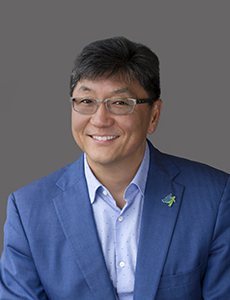
Michael Choo, MD Chief Medical Officer at Paradigm
Paradigm pairs each injured worker with a nurse case manager, who answers their questions, communicates with providers and drives the entire arc of care. Diane Davis, RN, CCM, helped support the Hall family through their healing process.
“When you have such a traumatic, catastrophic injury, where your physical presence is so different than it was, you absolutely need some kind of support psychologically,” says Davis. “I don’t think you can recover with just physicians sewing you together. You’ve got to heal the heart and the mind and the body.”
Davis and all Paradigm team members are trained to support injured workers and their families, assess their situations and draw on Paradigm’s vast resources. This includes a unique proprietary care management system, which captures broad, historical and real-time data to map the recovery pathway. Hall’s recovery was guided by an expert-driven, data-guided system. Diane Davis was the link between this expertise and the Hall family.
“When Diane came on board, I really thought I was just sent a guardian angel,” says Jean Hall, Brian’s wife. “From that moment on, that’s how I felt; I’m not going to be alone.”
Paradigm’s psychosocial strategy mirrors their physical injury approach: Assess, target a result, embrace the best available resources and manage progress towards the predicted outcome. Still, it’s important to maintain a clear-eyed understanding that the path from assessment to outcome is not always linear. Injured workers often face complications. Deep knowledge, advanced planning and situational flexibility make an enormous difference.
“We recommend the best providers based on each patient’s unique needs,” says Dr. Choo. “We know who will provide the best pain care, the best cognitive behavioral therapy. Perhaps the patient needs mindfulness therapies or yoga. An amputee might benefit from mirror therapy. If patients can’t travel, we can bring in a telemedicine approach. We introduce creative ways to provide for the psychosocial needs of injured workers who may not be so open to it. We’ve got to do it in a way where they will invest in their own recovery.”
This comprehensive, personalized approach helps patients and their families identify potential psychosocial issues, while facing great physical challenges, and take the most appropriate steps to remedy them.
“As we were continuing in my recovery, I remember reaching out to Diane, saying we need to do something to save our marriage,” says Hall. “She facilitated that and found a phenomenal therapist that did save our marriage.”
This is what true value-based care looks like — understanding the best possible outcome from the start and bringing every possible tool to bear to reach that outcome. It comes from having data from thousands of cases and using that information to make the right care decisions.
Like many people who suffer a catastrophic accident, Brian Hall had to fight for his recovery. But he had help from his family, Navy buddies and providers and continuously found the inner motivation to move forward.
“Brian is a person of great fortitude,” says Paradigm medical director, Jeffrey Saffle, MD. “His military career testifies to that, and that helped him rise to the occasion of overcoming this massive injury.”
After many procedures, months of rehabilitation and endless hard work, Hall achieved his personal recovery, reintegrating with family and community and moving forward with his life.
“You never know what strong is,” says Hall, “until strong is your only choice.”
To learn more, please visit www.paradigmcorp.com.
This article was produced by the R&I Brand Studio, a unit of the advertising department of Risk & Insurance, in collaboration with Paradigm. The editorial staff of Risk & Insurance had no role in its preparation.





